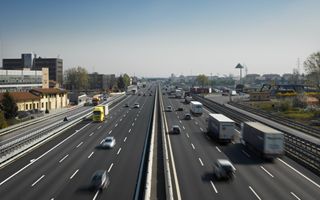(Finance) – It’s often the leadership of young Italians is at risk which, on the basis of bad habits “inherited” from adults, they exceed in speed and distraction (the use of mobile phones) and they often wear behind the wheel in an impaired state psycho-physical that clouds lucidity and reflexes. In the first week of application of the new Highway Code, the “Don’t Close Your Eyes” Observatory Of Skuola.net And Motorways for Italy photographs the situation on a sample of 2,124 young people between 16 and 25 years old.
From the Observatory, which is part of the awareness project of the same name aimed directly at students and schools, it emerges that, among those under 25 who usually drive a two or four-wheeled vehicle – car, motorbike, moped, microcar, bicycle or scooter – well 1 out of 5 admits to having a generically distracted approach when he has a steering wheel or a handlebar in his hand. A behavior that is often the result of underestimation of risk: when you have to choose whether or not to get into the car with a driver who is not fit to drive – because drunk, sleepy or otherwise – in 4 out of 5 cases we opt for the riskiest solution, that is accept the passageignoring the fear (59%) or pretending nothing happened (19%). Only 22% actively took action to try to stop the driver from driving. And what’s even more alarming is that this isn’t such a rare scenario: it’s happened to over a third of those interviewed (31%).
In this context of lack of awareness, sI also go so far as to normalize distraction: 1 in 5 uses a smartphone often without hands-free or driver interface devices such as the infotainment of your car. Only exactly half of the sample interviewed can say that they never use their smartphone incorrectly (49%) and that they have never, ever used it to create social content while driving (50%). Which means that taking selfies, social media or videos while driving is not an unusual practice. There is also no shortage of those who often drive by been impaired by alcohol or “substances” (18%)to overcome the speed limits (39%) or to hit the road though very tired or sleepy (66%).
It emerges almost a fifth of drivers (19%) which he claims to have caused at least one accident due to his behavior behind the wheel. And a further third (35%) came very close. A worsening figure compared to the past: last year only 12% of participants had caused an accident.
It gets noticeably worse the share of those who drive at excessive speed: happens to 39% of the 2024 sample, compared to 28% recorded 12 months ago. As well as the percentage of those who respect the main safety standards while driving, such as fasten your seat belt or wear a helmet: today only 64% declare themselves always compliant, compared to the 81% recorded previously.
To act as a driving force for this widespread “road miseducation”the almost total could be decisive lack of correct information on the topic. And although traffic education is part of the teachings included in Civic Education, just 18% of young people claims to have treaty the topic at schoola percentage which is also increasing compared to 14% last year, which is flanked by 33% to whom it happened only once. All the others – 49% of those interviewed – have never been reached by initiatives of this type.
The growth of traffic education at school has also contributed to “Road safety project at school – Don’t close your eyes” which they joined in 2023 beyond 220 institutesinvolving around 19 thousand students, in more than 860 classes. There educational proposal from Autostrade per l’Italia also this year offers secondary school teachers a “turnkey” package of activities on road safety education, including the possibility of having students try their hand at a creative contest or being able to meet experts and testimonials at school. Autostrade per l’Italia’s commitment to raising awareness among young people about road safety and respect for correct driving behavior thus continues.
